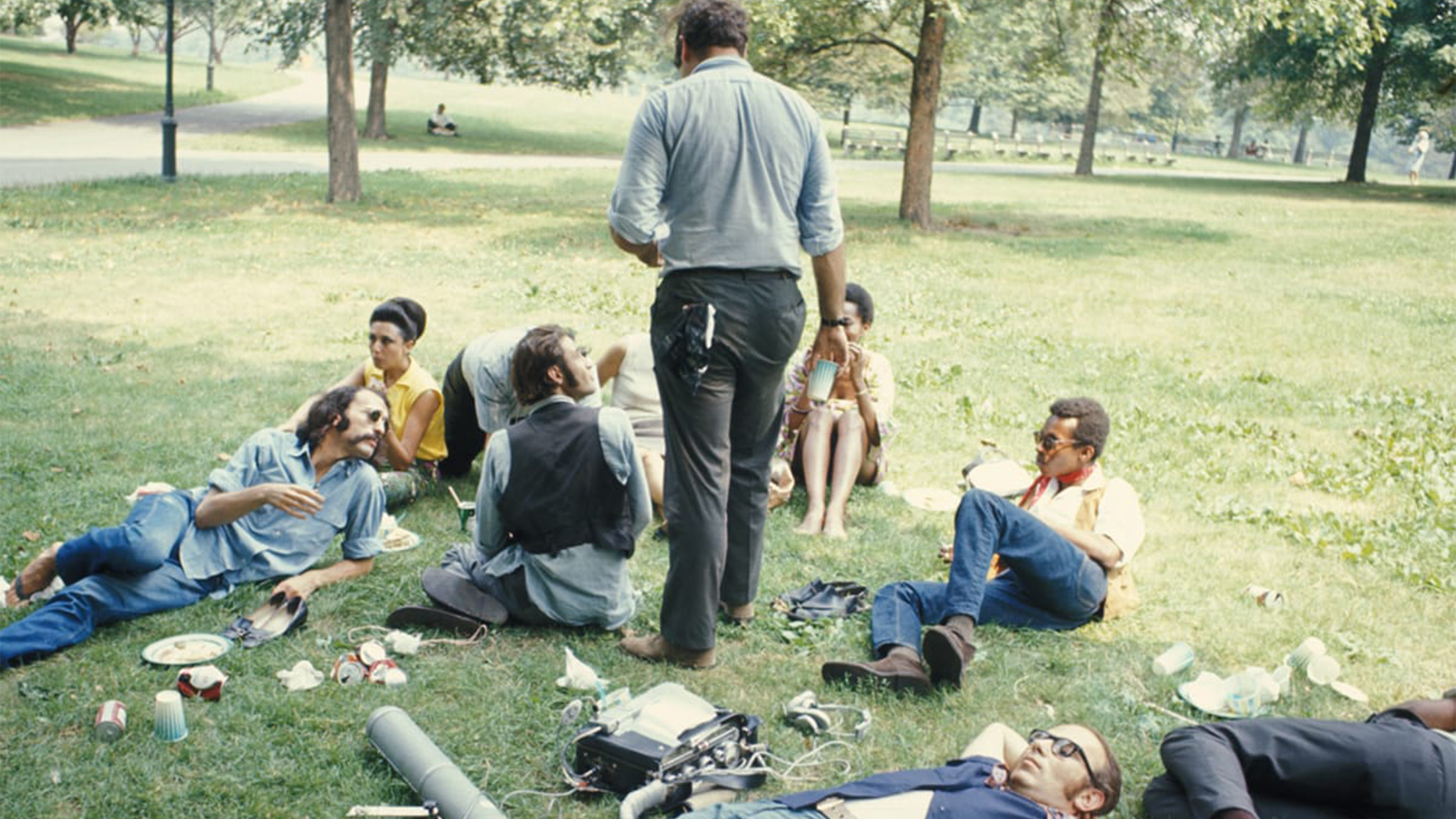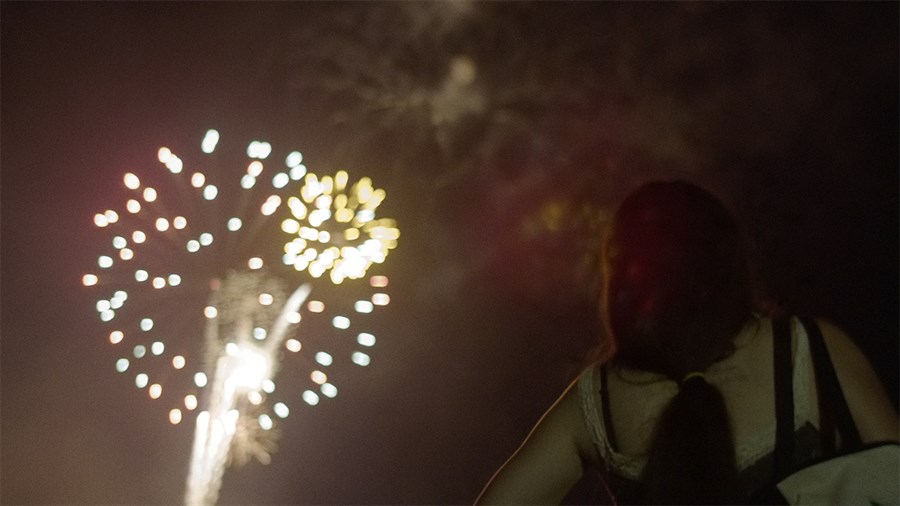It’s been more than two weeks since George Floyd suffered the ultimate price for being Black in America with his neck being strangled by the boot of a white policeman. Since his death by asphyxiation by Derek Chauvin, much has happened in the United States and throughout the world. Tens of thousands people from all races and colours, from Berlin to Auckland to Toronto to Washington D.C., have protested this devastating abuse of power and overt racism. Media coverage has been vast—and caring. It feels that attitudes towards such crimes against humanity have changed and that parts of Western society are willing to embrace a more confrontational approach to intolerance.
Black Lives Matter. pic.twitter.com/aRwDVjuI0O
— Criterion Collection (@Criterion) June 4, 2020
Criterion responded to the outrage by removing the channel’s paywall on their amazingly thorough collection of African-American cinema. A recent announcement by Criterion CEO Jonathan Turrell and President Peter Becker states that their company will “fund a $25,000 initial contribution and an ongoing $5,000 monthly commitment to support organizations fighting racism in America” and that the Criterion Channel will make free to all viewers their films “that focus on Black Lives, including works by early pioneers of African American Cinema such as Oscar Micheaux; classics by Maya Angelou, Julie Dash, William Greaves, Kathleen Collins, Cheryl Dunye, and Charles Burnett; contemporary work by Khalik Allah and Leilah Weinraub; and documentary portraits of Black experience by white filmmakers Les Blank and Shirley Clarke.”
This is welcome news for Blacks and people from diverse backgrounds, humanitarians and activists but also for cinephiles, who have not known many of the films created by Black filmmakers in the U.S. It’s a great opportunity to explore films that weren’t given a high priority by, let’s face it, white distributors when they first came out.
There are many films to be seen online but let me recommend a critical handful that I’ve enjoyed over the years. Here are five docs or hybrids, well worth watching:
Symbiopsychotaxiplasm Take One.
“It’s the ultimate ‘reality’ piece.”—Steven Spielberg
William Greaves’ meta documentary on making a film about a disintegrating love relationship called “Over The Cliff,” is a tour de force of experimental filmmaking from that tragic and magical year, 1968. Greaves structured the film around having three film crews. The first would shoot a couple having an argument over their failing marriage, the second was told to shoot the “making of” those takes and the third attempted to capture everything the two other crews shot—and things they missed. In addition, and to Greaves’ surprise, the crew shot three extended “rap” sessions, in which they critiqued the director and how he was handling the film, but in a somewhat respectful manner.
On the screen, you generally see one shot, but there are many occasions when two takes are being shown separately and several bravura moments when three versions of the same time period can be seen simultaneously. Very meta and très filmique. Greaves’ film is a challenging but exciting film to see now—and that it was made by a Black man over 50 years ago is remarkable.
Noteworthy for Canadians, William Greaves is the first Black film director in this country. An American who lived in Montreal in the 1950s, he worked for the NFB and made Emergency Ward, a classic early verité in 1958. For Symbiopsychotaxiplasm Take One, Greaves got his old NFB friend Terence Macartney-Filgate to be the film’s main cinematographer.
Emergency Ward, William Greaves, provided by the National Film Board of Canada
Portrait of Jason
Starting with the underground drug and jazz oriented feature The Connection in 1961, white bohemian director Shirley Clarke spent a good deal of her career making films about Black culture. Her most famous film, made five years later, is an up close and personal documentary about a Black queer hustler and artist called Jason.
Shot in the notorious New York hotel, The Chelsea, Clarke’s doc only shows Jason on screen although you can hear her voice and that of her Black lover Carl Lee during powerful moments in the film. The charismatic and talented Jason, whose real name is Aaron Payne, talks to the camera about his peripatetic life as a hustler while regaling Clarke with songs and impromptu comic routines. Throughout the film, Clarke supplies Jason with alcohol, making his stories more dramatic and, occasionally mawkish as he gets drunker and drunker. By the end of the film, Jason has been pushed to the edge, either revealing or pretending to reveal his innermost thoughts. Undeniably powerful, Portrait of Jason has been criticized as an example of a white person’s exploitation of a Black man. Others—arguably the majority—see it as a work of art. It is a riveting work that is compulsively watchable even though it is problematic.
Black Panthers
Agnès Varda accompanied her husband, film director Jacques Demy, to California and shot this short film on the Panthers in the summer of 1968. At the time, the Panthers were engaged in a series of protests, demanding justice for their leader Huey P. Newton, who had been arrested for allegedly shooting a police officer, after he had been stopped while driving a car. (Sound familiar?) Varda’s film is mostly reportage, showing the Panthers as they likely were: not so notorious and actively attempting to demonstrate and act peaceably. In the end, Newton was never found guilty of the officer’s death and was eventually freed.
The Watermelon Woman
This late Nineties indie feature was a tour de force, directed, written, edited and starring Cheryl Dunye as a young Black lesbian making her first full length documentary. It blurred the lines between docs and fiction as Dunye becomes obsessed with a talented Black female actor Fae Richards called “the watermelon woman,” whose attempt at film stardom in the 1930s only led to demeaning “mammy” parts until she was rejected by her lesbian white director and eventually retreated into obscurity. Dunye’s quest to find out the true story of the watermelon woman plays out while she works as a reluctant video store employee and wedding filmmaker while engaging in a controversial affair with a white woman. Funny and touching, the film incorporates elements of mystery and romance in a serious exploration of the impossibility of a Black woman achieving overwhelming success in Hollywood.
Urban Rashomon
“My photography isn’t about being pretty. It is very much about beauty. It is very much about truth”—Khalik Allah
One of the toughest and rawest of current documentarians, Khalik Allah’s work is true, unapologetic verité, which doesn’t mean that it isn’t complex. Evoking the Kurosawa masterpiece Rashomon which proposes that everyone sees truth differently, Allah has made a film that shows how he, as a photographer, captured on film Frenchie, a homeless Haitian man in Harlem. As a viewer, we see Frenchie, clearly deranged and defenseless, singing in Creole and allowing Allah to shoot him at 125 Street and Lexington, still unvarnished Harlem turf, first for photos and later for film. Allah buys legal THC substitutes for marijuana, which smell like skunk, in order to get Frenchie’s time for shoots. The two float in a problematic space, where it’s unclear whether Allah cares about Frenchie or about his project, which is to document him. At the end, we see Rashomon, in the emotional scene where the thief tries to justify himself. In a fearless gesture, Allah, whose photography of Frenchie is absolutely brilliant, admits his dispassionate “professional” attitude towards his subject. But is that too deprecatory? Isn’t he truly conflicted? The film allows us to question the truth of the documentary approach in photography and film.
All of Allah’s films, are worthy of your attention, but I’d like to recommend Field Niggas, which is also on Criterion Channel.













